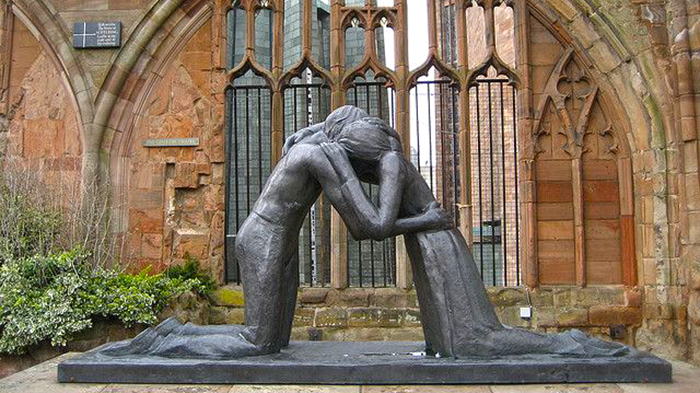
Bishop Barron notes that Moses is, without a doubt, the greatest figure in the Old Testament. He heard the voice of God from the burning bush; he was chosen to lead the people of Israel to freedom; he was given the Ten Commandments; he was permitted to speak with God as a friend. Every teacher within ancient Judaism derived his authority finally from Moses. Therefore, when Moses speaks of a prophet who is to come, who is “like himself,” and who should be listened to—apparently of even greater authority than Moses—Israel took heed. Jesus is the prophet whom Moses predicted would come. But who, finally, could have the authority to speak the divine Word and bring healing to creation? It could only be God himself. In the Jewish scriptures, there’s a famous incident in which Moses asks God to see his face. God answers that this is impossible because nobody can see God’s face and live. When Moses persists in his demand, God offers a compromise: He tells Moses that he will place him in a cleft in the rocks, put his hand over Moses’s face, and then pass by so that Moses will get to see God’s, back, though never his face. Fr. Rolheiser writes that we struggle to feel God in the present moment, to see God’s face in the here and now. In the present, God often seems absent. Yet, when we turn around and look back on our lives, when we look back on our story, we more easily see how God has been there all along and how we have walked in a divine presence, protection, guidance, and love that were imperceptible at the time but are clear in retrospect. We see God more clearly in our past than in our present. We see God’s back more than we see God’s face. This can clarify how Christ is present to us, even when it doesn’t always feel like it.









